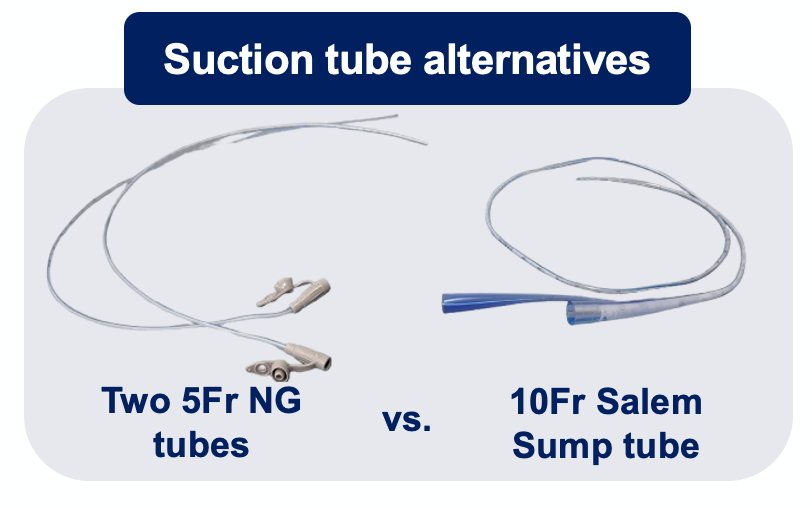By Mary Seifu Tirfie (pictured above in Rice360 lab)
My name is Mary Seifu Tirfie, I am from Ethiopia and my fellowship project is a low-cost neonatal gastric suction device.
Gastric suction for newborns can alleviate a build-up of fluid in the gastrointestinal tract of a baby to avoid complications such as aspiration. Left untreated, conditions related to excess GI fluid can cause death in a newborn. In many low-resource settings, the means of removing fluid are unavailable. For example, many health facilities lack automatic vacuum suction built into the wall of the care facility as you typically find in high-resource settings. Without this infrastructure to suction fluids, newborns with a variety of gastrointestinal conditions are at high risk of suffering from aspiration, gastrointestinal distress, or death. At Rice360, as part of my fellowship, we are working to develop a safe, affordable, effective neonatal suction machine suitable for resource-limited settings and that uses few consumables.

Project Milestones: Needs Assessment
Listening to the end-user’s needs is key to successful development of technologies, especially in settings with unique design specifications, such as a resource-limited setting. During the first year of my Rice360 fellowship, I had the opportunity to travel to Santo Domingo in the Dominican Republic to understand the background of this device development and performed a needs assessment, ensuring that the device would be developed with a solid understanding of how it will perform.
Project Milestones: Tubing

After completing some of the groundwork, I was able to work with my team to make a preliminary prototype and develop benchtop testing to evaluate alternative tubing solutions. Tubing, we found in our research, is one key hurdle in the design of an effective suction device. The current tubing standard used for neonatal suction in most high-resource settings is unavailable in resource-limited care facilities and is also quite expensive as a consumable. As a result, much of our development has turned to understanding safe and accessible tubing options for our device.

Project Milestones: Stakeholder feedback
From the wonderful feedback we have received thus far from our mentors, many clinicians, and other stakeholders, I believe this project has the potential to improve and expand the treatment options for gastric suction in resource-limited clinical settings and provide a needed solution to some causes of neonatal mortality where gastric suction remains unfamiliar due to it being unavailable.
Design Community: Sharing Progress of the Neonatal Suction Device
I have been so fortunate to get many opportunities to share my design and findings with the larger community of innovators interested in global health technologies. I was able to present a poster at the 12th Annual Houston Global Health Collaborative Conference on April 6, 2024. I gave an oral presentation at the American Pediatric Surgeons Association Annual Meeting in Phoenix, Arizona, from May 16 -19, 2024. My poster was also accepted for presentation at Innovation for Day One, which was held on September 25-27, 2024, in Houston. I was awarded second place at the Innovation for Day One conference! I also presented a poster and oral presentation at the UTMB Global Health Symposium in Galveston, Texas, on October 19, 2024. All the feedback I receive at these events has improved and informed my design.
Goals for the Neonatal Gastric Suction Device
It is looking like the likely next main steps will be optimizing the neonatal gastric suction prototype to a level suitable for a usability study. Then, collaborations with manufacturers could guide us through clinical testing of the device to ensure its suitability for a NICU.
Rice360 Fellowship: How has your Rice360 Global Health Fellowship benefited you?
My experience with the fellowship so far has been wonderful! I have learned so much about global health and the engineering design process in such a way that is very applicable to the real world, especially towards my personal motivation of development of healthcare in my home community in Ethiopia. I have also met and worked with many amazing people within and through this organization that have solidified my desire to continue being part of global health initiatives.
I have acquired new skills in scientific communication, presentations, prototyping, developing lab testing protocols, clinical observations, professional communication with clinicians, and overall professional development.
I feel that this program has opened the door to multiple paths and opportunities for my future that I was unaware of before. It has shown me that I can pursue a career where I can do what I love and help my community at the same time. Now, I feel that I have the confidence to continue in industry, academia, or even start my own thing. The possibilities are endless!
___________________________________
Interested in becoming a Rice360 Global Health Fellow? Apply today!
